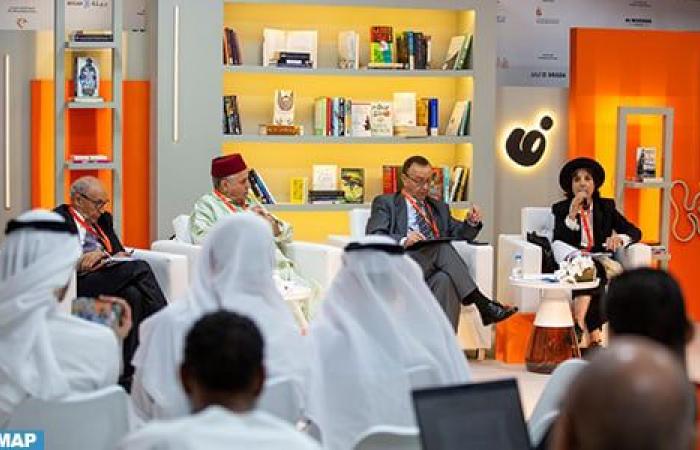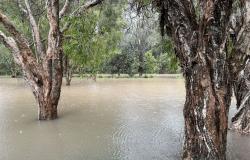
Friday, November 15, 2024 at 11:23 p.m.
— DNES : Hajar RADDI —
Sharjah – Moroccan historians and researchers highlighted, during a conference held as part of the 43rd edition of the Sharjah International Book Fair, the deep historical link between Andalusia and Morocco, highlighting the unity historical and intellectual between the two, in addition to the profound impact of the Islamic world on Western culture.
Organized under the theme “Moroccan Andalusia”, this meeting was an opportunity for the speakers to recall the close relationship between Morocco and Andalusia throughout history, making the Andalusian heritage a major tributary of the Moroccan identity, as stipulated in the Kingdom’s Constitution.
They also explained that Morocco is considered the heir to the secrets of Andalusia on the literary, intellectual, artistic and cultural levels, ranging from cuisine to music, architecture and other areas, noting that at a time when the East considers Andalusia as the lost El Dorado, Moroccans believe that Andalusia continues in them until now.
On this occasion, the director of the Royal Hassania Library, Ahmed-Chouqui Binebine, highlighted the major role of Andalusia in the enrichment of Western civilization, emphasizing that scientists, philosophers and doctors from the Islamic world have contributed to the transmission of Andalusian heritage through manuscripts and translations.
In this sense, he said that the city of Toledo, in the 3rd century AH, was an important center for the translation of hundreds of Arabic works into Latin, adding that scholars such as Ibn Rochd ( Averroes) and Ibn Sina (Avicenna) have forever marked the history of Western sciences.
Spain has preserved a large number of Arabic manuscripts which were documented at the “Escurial Monastery”, before being offered to Morocco in the form of electronic copies, specifying that the Kings of Morocco have always taken care to preserve and protect this heritage, he said.
For her part, the expert on Andalusian-Moroccan heritage, Fatima Tahtah, spoke of the multiple aspects of the unity linking Andalusia and Morocco on the political, intellectual, cultural and religious levels, emphasizing that this relationship dates back to the conquest of Andalusia and until the fall of Granada.
Morocco was the main refuge for expelled Andalusians, which strengthened civilizational, social and cultural ties between the two peoples, she noted.
In addition, the Moroccan professor, Ahmed Chahlane, highlighted the proven link between Western modernity and the heritage of the Islamic world, specifying that the concept of modernity, clearly visible in the thought of Ibn Hazm of Andalusia and Ibn Rochd of Cordoba, profoundly influenced Western philosophers who drew the prerequisites for critical thinking from these scholars.
Placed under the theme “The Morocco of cultures in Sharjah of the book”, the Moroccan pavilion within the Salon offers a rich cultural program with no less than 107 events bringing together around a hundred writers, authors and publishers and covering various cultural, artistic and literary fields, in addition to a series of sessions dedicated to the discovery of Moroccan cuisine.
The pavilion also allows the public to discover Moroccan heritage through conferences, plays, artistic exhibitions, round tables, as well as workshops for children on decoration and weaving. Around 4,000 titles from 25 Moroccan publishing houses are exhibited there.





